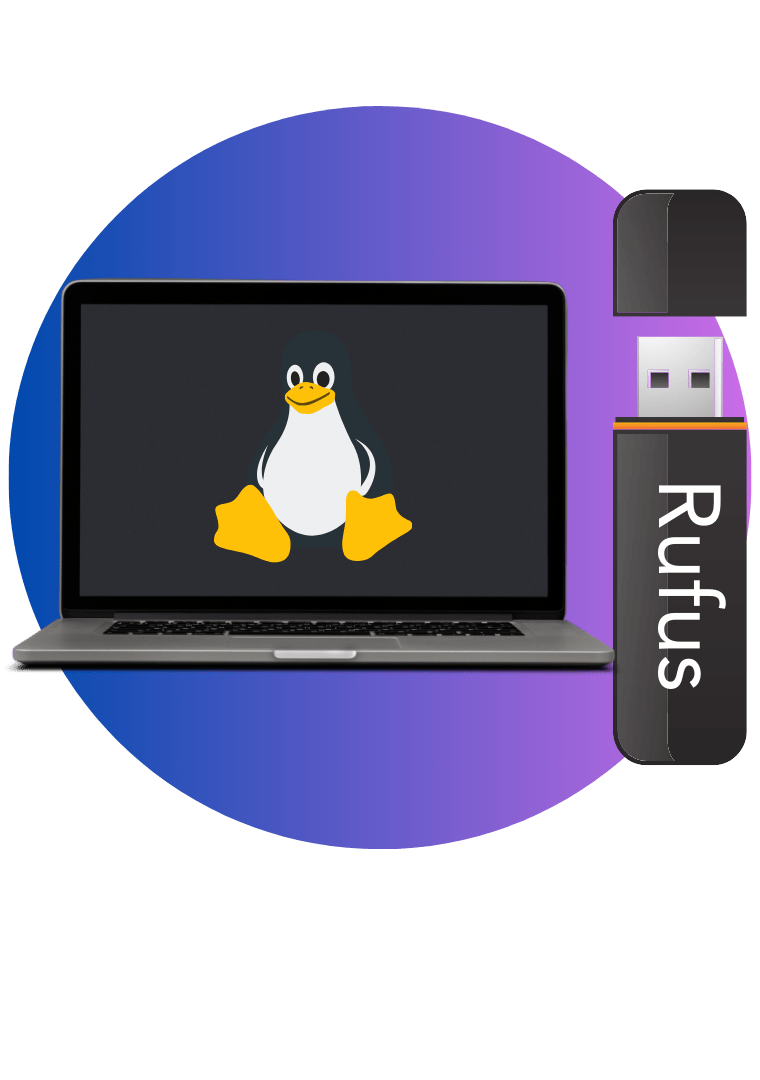Rufus Download for Linux
Rufus for Linux? Not available. How to create a bootable Linux USB drive?

Rufus for Linux? Not available. How to create a bootable Linux USB drive?

Rufus is an open-source program for creating bootable USB drives. It is simple to use and offers options to customize it according to your needs. Not only is it easy to use, but it is also very quick to create a bootable USB.
Unfortunately, Rufus is not available for Linux, it is only available for Windows. But there is a way to use it on Linux distribution. And also most of us who use it on Windows is looking for a way to and also an alternative tool Rufus on Linux.
So there are two main methods to create a bootable USB drive using Rufus on your Linux operating system.
When you decide to switch from Windows to a Linux distribution like Ubuntu, Linux Mint, and more! Or change any other distro, the most important part is to have a bootable USB to do the installation process.
In Linux, we have various tools to create bootable USBs such as balenaEtcher, UNetbotin, and dd command.
Don't like open-source projects? Rufus is open-source software that lets you create a bootable USB drive in a few easy steps. Just download and run Rufus to create a bootable device.
Follow the simple steps to download Rufus on your device and create a bootable USB drive with a few simple clicks.
If you're already utilizing Ubuntu, you don't require to do this from Windows. Simply open the launchpad and search for the "Startup Disk Creator" application that comes with Ubuntu. Provide the downloaded Ubuntu ISO file, insert the USB drive and the tool will create a bootable Ubuntu USB drive for you.
Many other distros have similar built-in tools, so you'll need to check and see what tools are available for your particular distro.
If you are using Linux, use the dd command to create a bootable disc. dd is a command line utility for Unix-like operating systems whose main purpose is to read/write data from/to files on devices such as USB drives. Since dd is integrated with GNU-coreutils, you can find it on almost all Linux distributions, as well as macOS.
# dd bs=4M if=path/to/ ubuntu. iso of=/dev/sdx status=progress oflag=sinc
If you find yourself it hard to use Linux distribution on your computer, there are plenty of alternatives that run on Linux with similar functionality as Rufus.
Below are some of the most outstanding Rufus alternatives for Linux.
UNetbootin is a real-time USB creator supporting Linux, Windows, and macOS. You get customization options if you want to explore all available players, and you can choose a distro to automatically download the ISO file.
Unlike some other alternatives, this is not specific to a Linux distribution. As such, it supports a wide variety of distros and system utilities.
It is a good platform for multiple platforms like Linux, macOS, and Windows. You don't have any advanced options here. Therefore, it is easy to use. Simply select the ISO (image file) and proceed to flash it to the target USB drive.
It is completely open source and verifies your drive to process. Also, it automatically selects the connected USB drive to prevent you from selecting a hard drive in case of accidental removal.
Fedora Media Writer is known to help you create live USB drives for Fedora Linux distribution. If you don't already have the ISO file, he can download it for you.
is also a great tool to repair USB drives if you cannot format them due to issues caused by other bootable USB creation tools.
Don't worry, you can also choose a custom image (besides Fedora Linux) to create a bootable USB
Rufus is a perfect application to create bootable USBs. Unfortunately, there is no Linux version yet. But it simply supports the Linux distributions like Ubuntu, Linux Mint, and many others. It also can be used with a third-party alternative. So, go ahead and fetch the best Rufus founded on your experience.